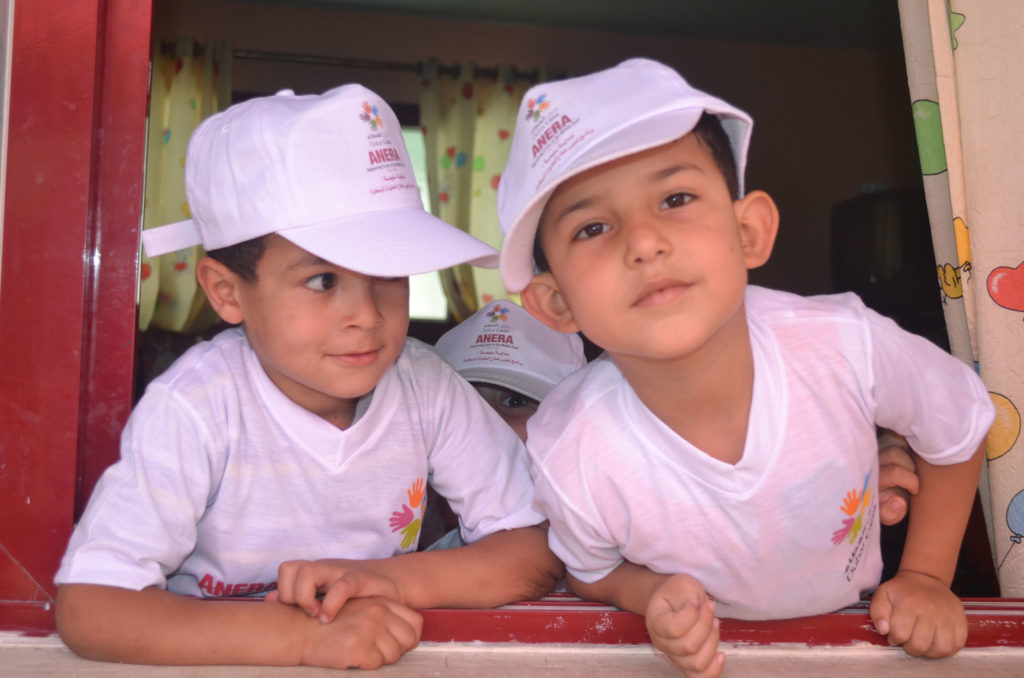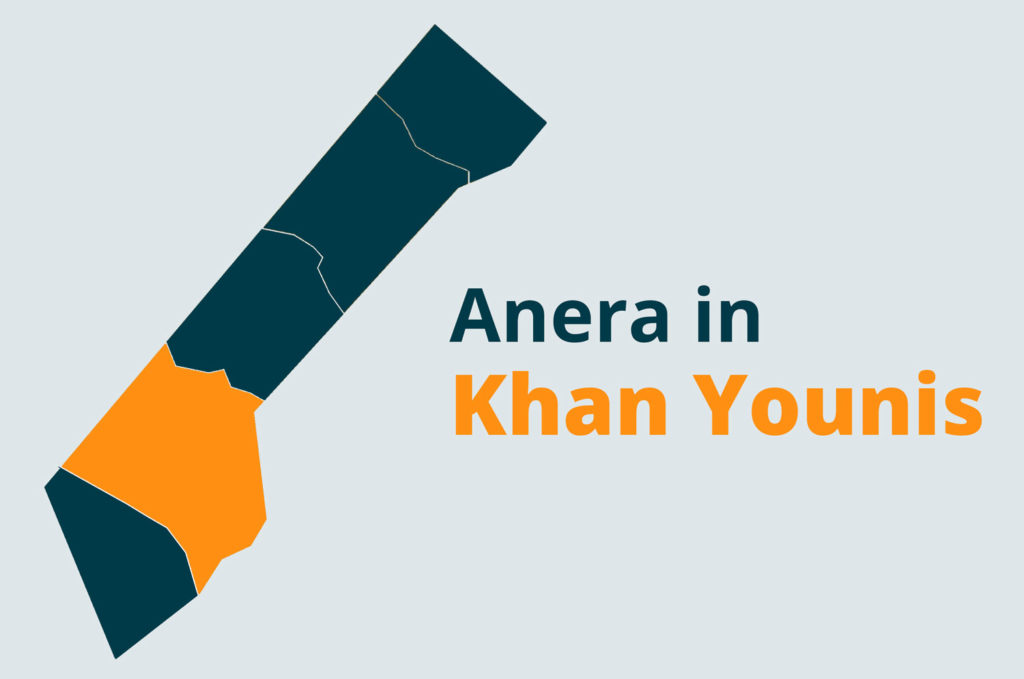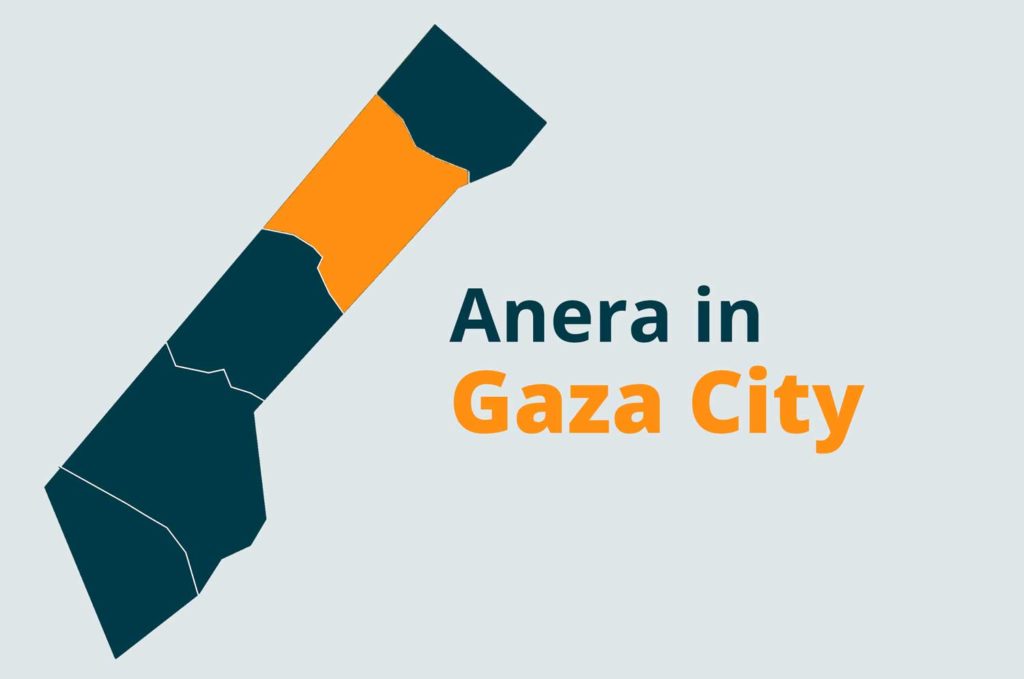Apr, 2021
Anera has been delivering programs in North Gaza for 40+ years. From strawberry fields to preschool classrooms, Anera donors have impacted thousands of people’s lives.
North Gaza is one of five governorates in Gaza. Just 23 square miles in size, the governorate is home to about 255,000 people, three good-sized towns – Beit Lahia, Beit Hanoun and Jabalia – and fertile farmland. The area is quite well known for its delicious strawberries and oranges.
North Gaza is also home to the Jabalia camp, the largest of Gaza's Palestinian refugee camps, with a refugee population of over 88,700. The camp is close to Gaza City and near the Erez border crossing. Tens of thousands of refugees live in an area less than one square mile wide, making it one of the densest urban areas in the world.
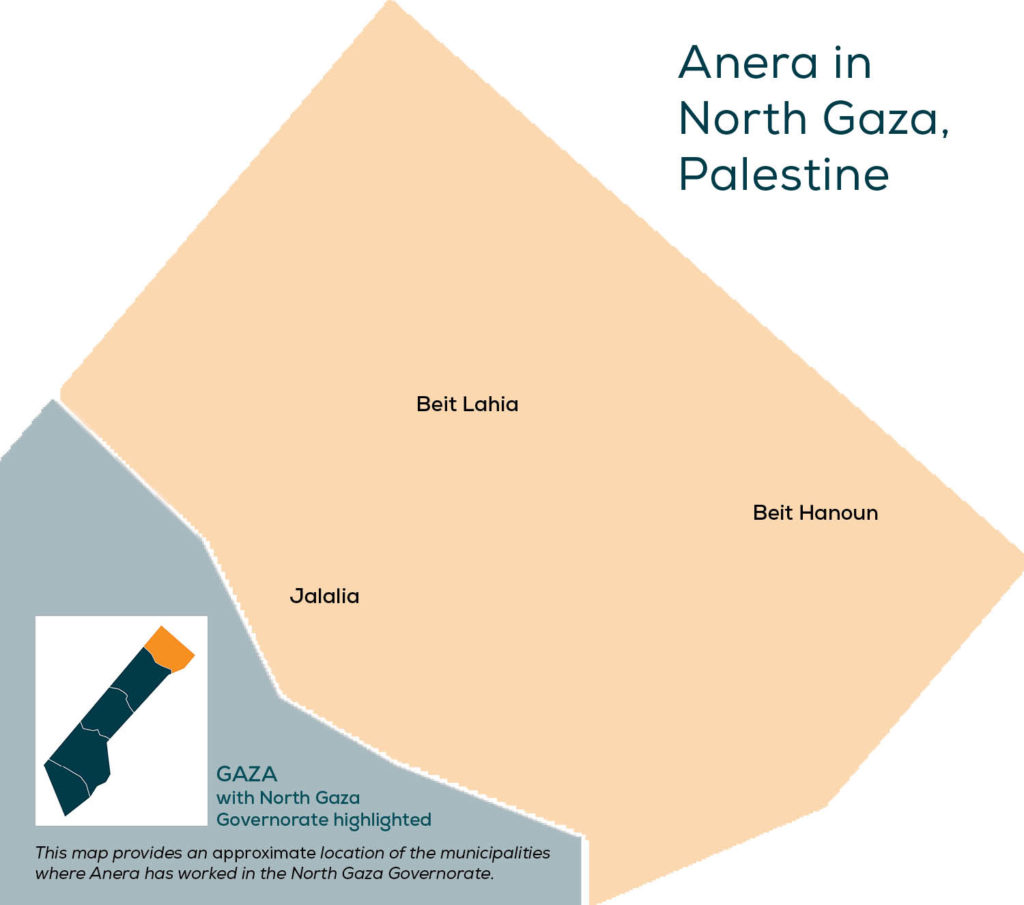

Water, Sanitation and Hygiene (WASH)
Water
Water scarcity is a serious problem in Gaza. Most Gaza tap water is too salinated and contaminated for human consumption. Water loss from dilapidated pipes is also a big problem. Many of the pipelines have far exceeded their useful lifetimes and often they are undersized and can’t handle the demands of an ever-growing population. Nine out of 10 people rely on filtered water provided by private, unregulated suppliers who maintain low hygiene standards.
Anera has always prioritized programs in Gaza that help families, schools, and wider communities gain access to safe and reliable water supplies.
Since 2015, with funding from Islamic Relief USA, Anera has rehabilitated water wells in Jabalia, Beit Lahia (Al Attatra), and two in Beit Hanoun (Gameel Al Shawa and Suqia Jenin), all serving densely populated areas. In each of our well projects, we installed new pumping facilities that vastly improved water pressure in people’s homes. These well rehabilitations gave tens of thousands of residents of North Gaza safe, more reliable access to water.
Anera also has installed, with IRUSA funding, water networks in the Izbet Beit Hanoun and the Al Shaimaa neighborhoods of Beit Hanoun and Beit Lahia respectively. We replaced steel pipes with PVC and extended networks to new homes that weren’t yet connected. To combat bacteria, we install chlorine units to clean the water in addition to installing reverse osmosis purifiers, which are a new addition to our projects. The purifiers significantly reduce salts and organic matter in the water, cleaning it to meet WHO standards. After installation, we run tests to verify that the piped water in people’s homes is testing negative for illness-causing bacteria.
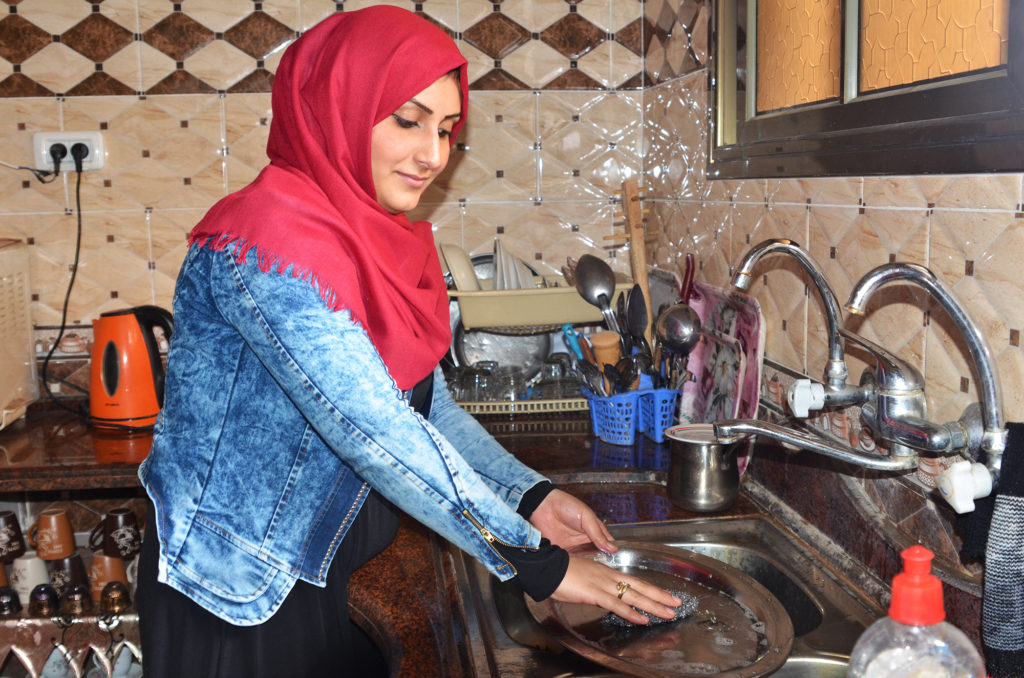

The 2014 bombardment of Gaza badly damaged water networks in Beit Lahia. Anera replaced and expanded water networks in the area, laying 4.5 miles of pipelines to reach 35,000 residents with water in their homes. In 2006, Anera replaced a water network serving 8,000 residents of Jabalia and repaired a water and sewage network in Beit Lahia, reaching 12,000 people. These impactful projects were funded by USAID.
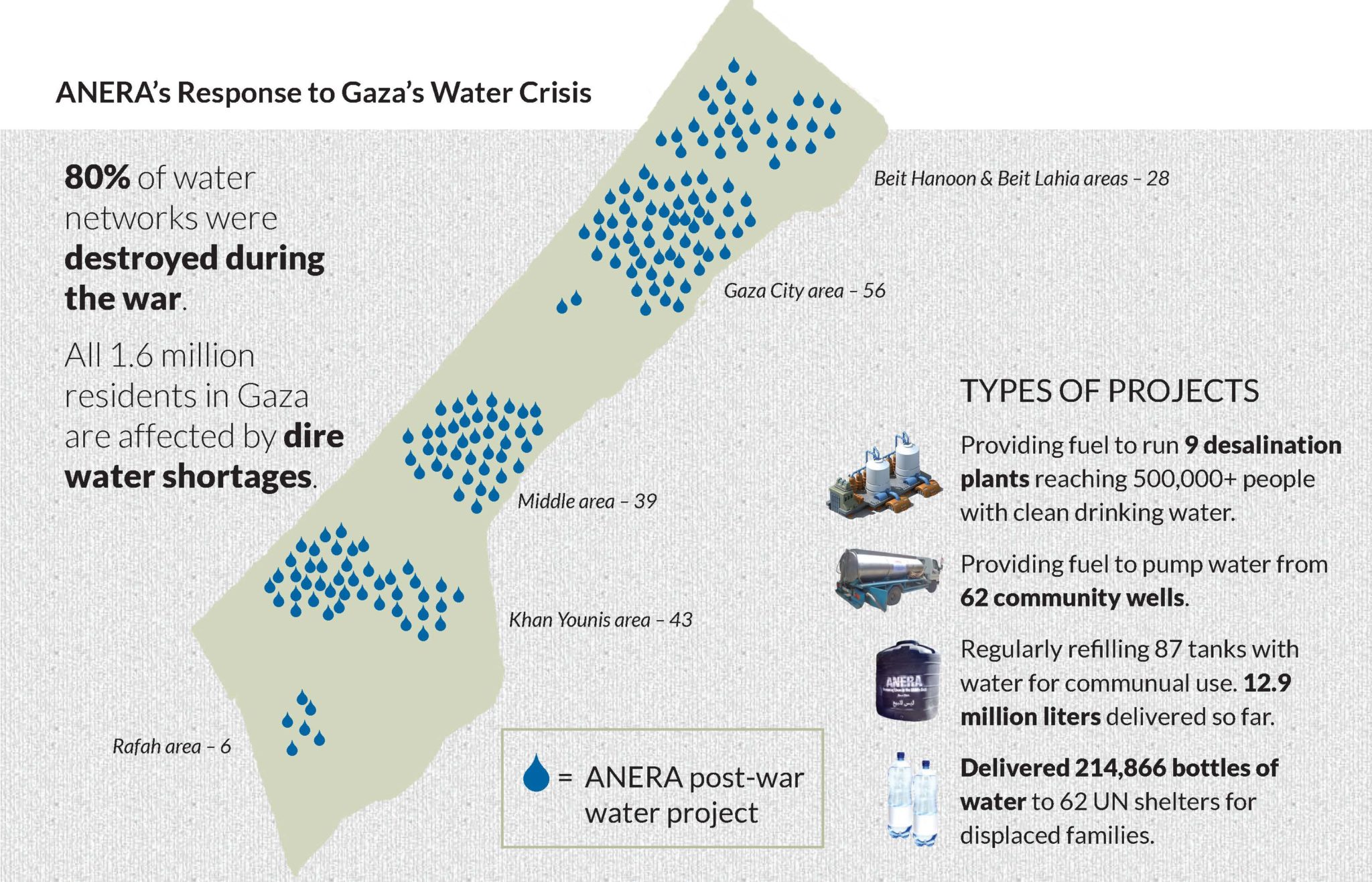

Sewage
Gaza’s aquifer is polluted with sewage. Septic tanks collect waste at homes. Once filled, families have to pay to have the waste emptied into municipal tanks. But it costs money that many families can scarcely afford, and trucks are not always available to pick up the waste. Sewage then builds up and overflows.
Anera installs underground tunnel systems for transporting sewage away from houses, removing waste from homes and pumping it to treatment facilities for treatment. In recent years, Anera has upgraded wastewater networks in the Garaman area of Beit Hanoun, the Shayma’a area of Beit Lahia, the Sha'sha'a area of Jabalia, and at the Al-Mashroo'a Sewage Pumping Station in Beit Lahia. We will soon upgrade the wastewater network in the Hawaber area of Beit Hanoun with funding from IRUSA.
Hygiene Awareness
With every infrastructure project comes public awareness sessions for the residents of the impacted area. We talk about waterborne illnesses – how to spot the symptoms and the best ways to treat illnesses once contracted, at home or under a doctor’s care. Families learn that they need to boil water that comes from rooftop tanks, as they are rarely cleaned. They also learn about the importance of hand-washing and cleaning produce.
Agriculture
The blockade that began in 2007 halted exportations and Beit Hanoun, once regarded as the food basket of Gaza, became dependent on food aid. Damage to irrigation systems and fields – due to military incursions and bombardments – further curtailed North Gaza’s agricultural capacity.
Agricultural Loan Program
Anera’s projects in the North Gaza governorate have helped professional farmers as well as burgeoning farming families. Through much of the 1990s, Anera worked with agricultural cooperatives in Tulkarem, Ramallah, Hebron, Qalqilia, Khan Younis and Beit Lahia to help small entrepreneur farmers. We created a loan guarantee program in partnership with the Arab Bank in order to encourage more lending to the agricultural sector. Anera deposited loan capital in a special bank account, which was used only when a farmer failed to pay back a loan. In Beit Lahia, Anera partnered with the Gaza Agricultural Cooperative for Producing and Marketing Vegetables to give loans to North Gaza farmers.
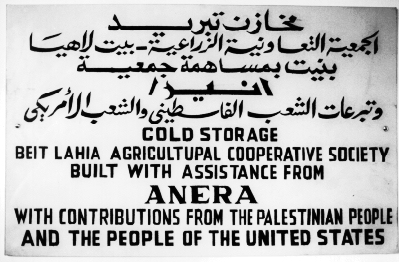

Wholesale Market Infrastructure
In the early 1990s, with funding from USAID, Anera built a wholesale market to allow merchants and farmers to sell their produce to consumers in Jabalia city and refugee camp. In the same time period, in Beit Lahia, Anera constructed the largest cold storage facility in Gaza to store fruits and vegetables and to give farmers an advantage in marketing and selling their produce.
Plastic Waste Removal and Recycling
For several years in the early 2010s, Anera hired dozens of day laborers to remove discarded plastic coverings from strawberry fields in Beit Lahia so that the farmers could plant their next crop. This project served as a perfect alternative to the farmers who, with very few options, would normally burn all of the waste. Instead, the waste went to a recycling unit to be reconstituted into bags and irrigation pipes. By the end of one of Beit Lahia’s agricultural seasons, the workers collected more than 200 tons of nylon sheets, plastic mulch and greenhouse covers.
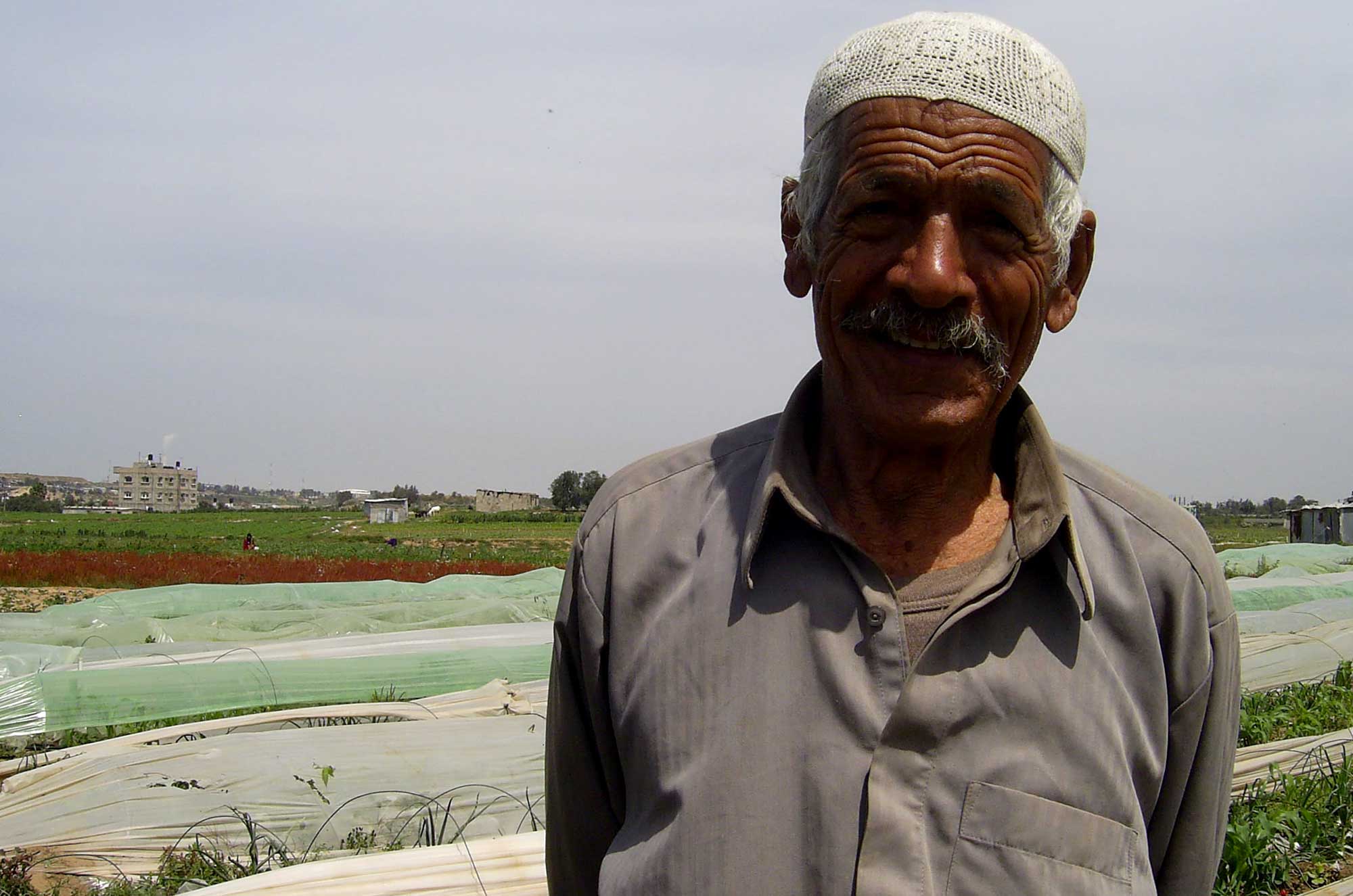

Greenhouses and Small Family Farms
Since the early 2010s, Anera has focused on helping families with a little farming know-how and green space. We have built approximately 600 90- to 150-square-meter greenhouses throughout Gaza, including 150 in North Gaza. Our agronomists work with families to plant crops. They also equip the gardens with tools and irrigation systems to provide sustained vegetable production for household consumption and sale to generate income for families in marginalized communities. Participating families attend Anera’s four one-day training sessions, which teach best practices for vegetable consumption, compost and pest management, and water-conserving irrigation techniques and grafting.
When torrential rains hit Gaza in the spring of 2020, the winds blew the sheets off a quarter of the greenhouses in Gaza, including many in North Gaza. Anera recognized that there was a small window of time before the crops would fail because of their exposure to the elements. Thanks to generous funding from an anonymous donor, Anera helped restore 43 family greenhouses with a total area of 1.75 acres, in addition to nine acres of greenhouses belonging to 50 farming households.
Women Economic and Social Empowerment
Anera recognizes that when women and girls have access to educational and economic opportunities, they invest in their communities and improve the lives of everyone around them.
Supporting Women’s Cooperatives
Cooperatives have for decades been some of Anera’s most prized and effective local partners in Palestine. One of our key partners in Gaza is the Cooperative Society for Saving and Lending (CSSL) in Beit Hanoun. This women’s center provides valuable services promoting economic and social empowerment to bolster the ability of women to become more independent. These programs include small income-generating activities for women, and services promoting their legal and economic rights.
Anera and CSSL are partnering to provide daily, nutritious meals for 1,000 preschoolers in North Gaza. This project brings together all of Anera’s current programs in Gaza to link schools, farmers, caterers, engineers, and trainers. Implementing a holistic, community-based approach to school feeding will improve the health, development, and wellbeing of Gaza’s most vulnerable children. By combining the efforts of local farmers and women entrepreneurs, the project creates income-generating opportunities while improving the food security situation at participating households.
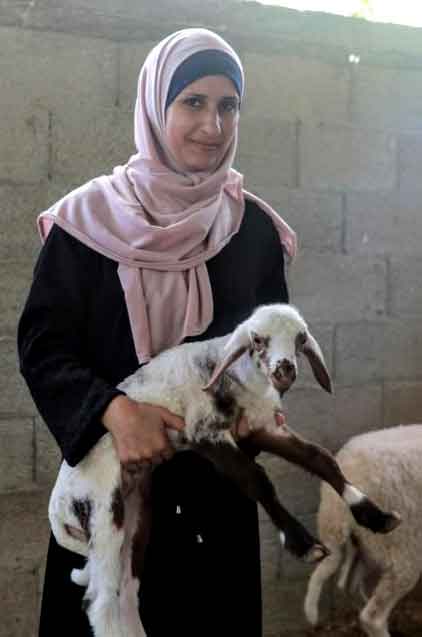

"After receiving a grant from Anera [through CSSL], I began a new stage in my life," saya Asmaa, 28, who lives in Beit Hanoun. She started her sheep-raising business in a small barn next to her house. “I grew up watching my grandmother making cheese and labneh from sheep milk and I can build my business on this knowledge.”
In 2017, with funding from IRUSA, Anera supported eight women’s cooperatives in Gaza with dough mixers, pans, cooking utensils and stoves to support their professional work and help them generate income despite the difficult economic conditions. The Cooperative of Bent El Reef Association in Beit Lahia is one of the cooperatives that participated. Its members were delighted to receive the equipment they needed to produce and market a wide range of their delicious foods.
Gaza Women’s Loan Fund
Anera created the Gaza Women’s Loan Fund (GWLF) in 1995 with the aim of helping low-income women launch small businesses to help sustain their families with small loans. With Gaza’s high unemployment rate and many men out of work, it can often fall to the women of the community to help their families survive. The fund grants small loans of between $1,000 and $3,000 to thousands of women in Gaza who would otherwise not have an opportunity to see their small business ideas come to fruition. Seamstresses, grocers, farmers, artisans and many others have successfully run businesses that support their families and provide needed services to the community. The GWLF still continues independently today.
Education
Through its early childhood development program, Anera has renovated, furnished and equipped 16 preschools serving more than 1,600 preschoolers in North Gaza and trained scores of teachers in child development and child-centered education through an intensive training program.
Anera preschool renovations create bright, open learning spaces for children and include child-friendly toilet facilities and shaded outdoor playgrounds. We fill classrooms with locally-made, Anera-designed furniture, educational indoor and outdoor games and toys, as well as books.
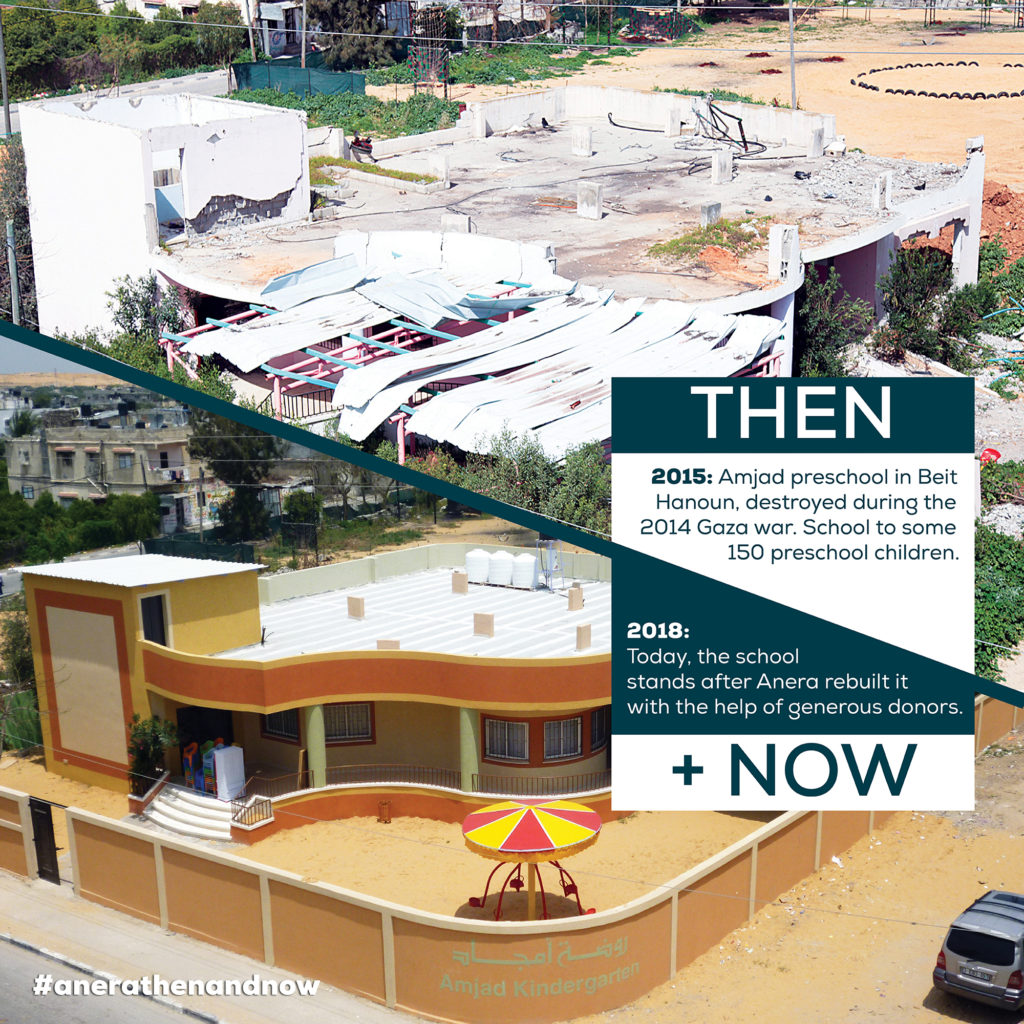

Most Gaza preschoolers have been affected by conflict and pervasive violence. Over the years, Anera has provided psychosocial support to create protective environments for children in their communities. We work to increase the capacity of teachers to reduce the tensions and anxieties of traumatized children in their care by engaging kids in activities that encourage self-expression, build self-confidence, and improve their overall psychological well-being.
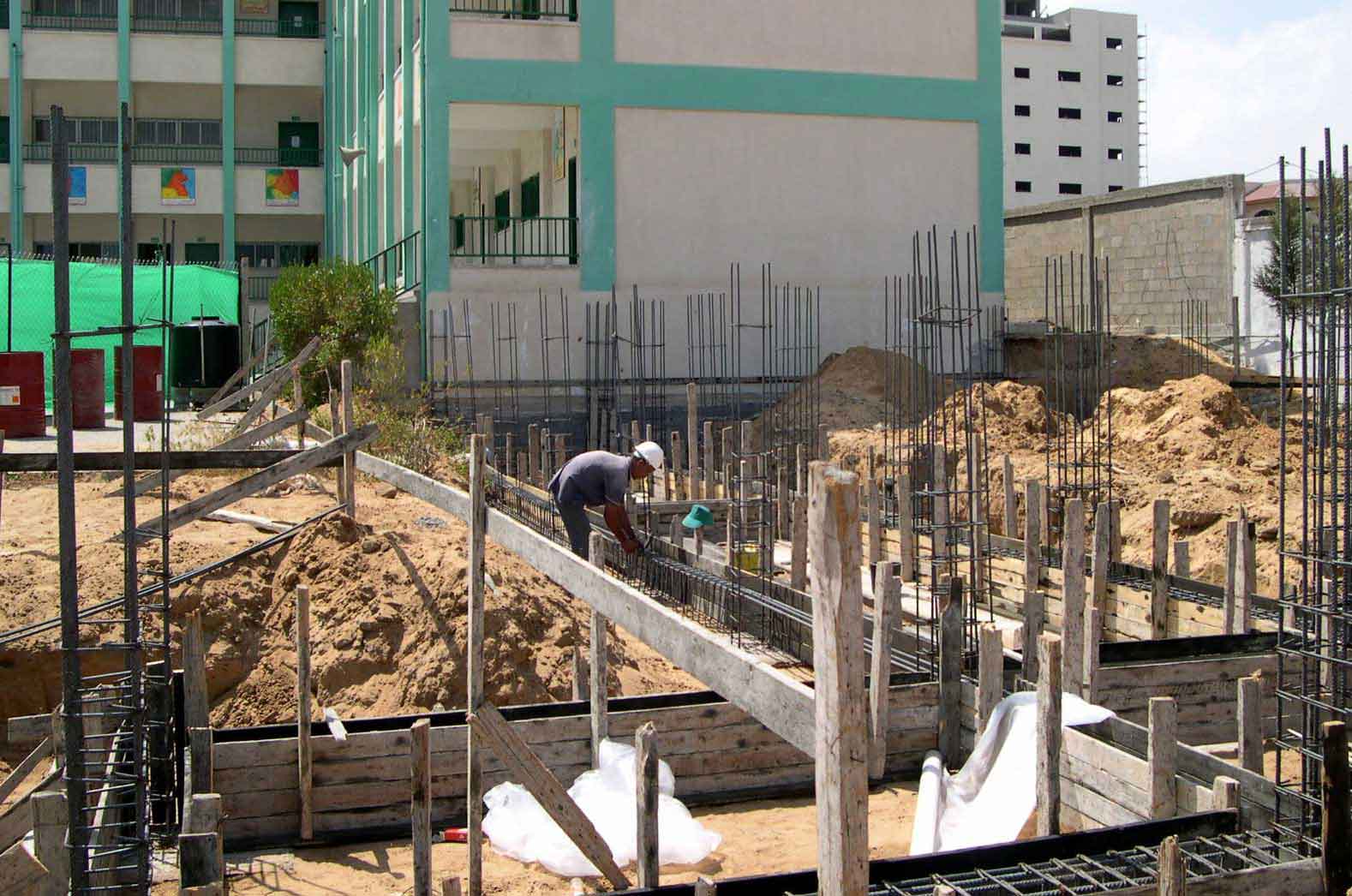

Health
Medical Aid
A professional reputation with authorities, coupled with Anera’s familiarity with rules and restrictions, ensure a level of access to Gaza that other organizations are unable to achieve. Despite perpetually evolving challenges as a result of the blockade and bombings, Anera has for decades successfully delivered hundreds of donated shipments worth many millions of dollars to Gaza. These shipments have included pharmaceuticals, blankets, bandages, crutches, wheelchairs, and other desperately needed medical supplies. Our two recipient organizations in North Gaza, the Friends of The Kind-hearted Society in Beit Lahia and the Nibras Alajyal Association in Jabalia can therefore make these medicines available to disadvantaged patients free of charge or for a nominal fee. This means that families, hospitals and clinics can use whatever limited resources they have to fill other important needs.
Healthcare infrastructure
The problems at clinics and hospitals in Palestine are widespread, from peeling paint and water damage to outdated equipment and overcrowding. Bombs and other effects of conflict have also left behind damaged health care facilities in Gaza. And many areas are simply underserved.
In Beit Lahia, Anera built a new clinic in 2018 to serve a community of 30,000 area residents. The building, run by Anera’s partner the Friends of The Kind-hearted Society, offers dental, medical, laboratory, pediatric, obstetric, and other health services. The clinic makes health care more accessible for patients by reducing the cost of transportation, medicines, and doctor fees.
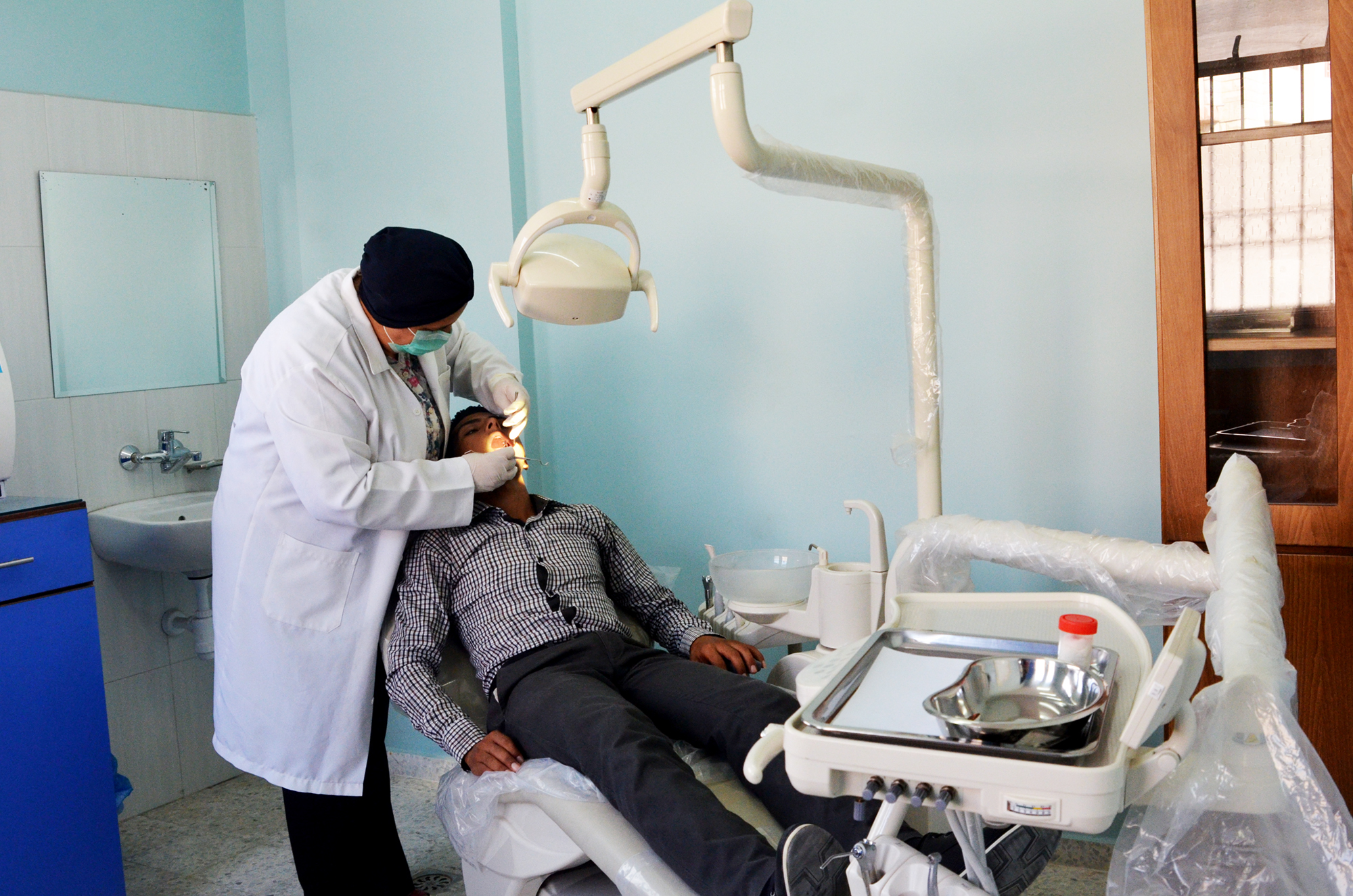

Several years earlier, with USAID funding, Anera constructed the Abilities Enhancement Center for Jabalia Rehabilitation Society, which provides comprehensive rehabilitation services for a growing number of persons with speaking and hearing disabilities. The building covers an area of 600 square yards and includes a gymnasium and physiotherapy hall, four classrooms, a computer lab, and more. Children and adults with disabilities now have access to a space that can host sports, fitness, educational and recreational activities as well as awareness and other training sessions.
Milk for Preschoolers
In 2002, Anera and Johns Hopkins conducted a study in Gaza which found that children were suffering from anemia, vitamin A deficiency, and malnutrition. The next year, Anera began its Milk for Preschoolers, supplementing the nutritional needs of the most vulnerable children with a snack of carefully fortified milk and biscuits. By the end of the program in 2011, when the program ended, Anera was daily feeding 25,000 children every year at preschools across Gaza, including scores in North Gaza.
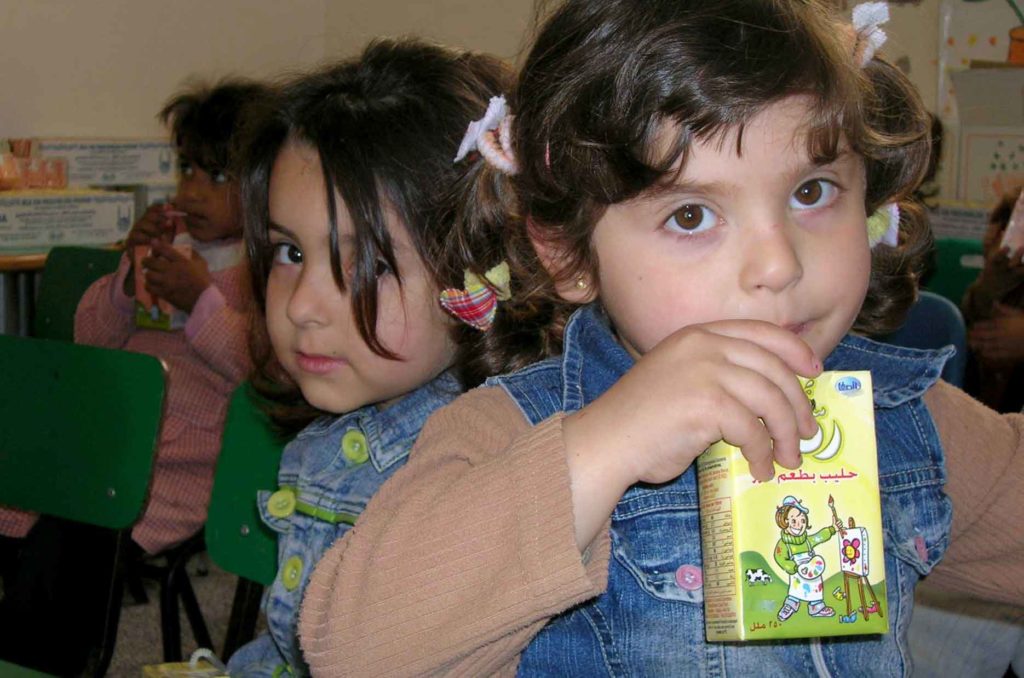

Emergency Relief in North Gaza
Anera is always there to step in to ease the suffering of families caught in situations they can’t control. Our staff have a tried-and-true system for getting people and communities what they need most: medicines, food packages, clothes, blankets, hygiene supplies and more.
Anera donors have responded for many years to humanitarian crises in Gaza, and mostly recently in the wake of three devastating wars and a decade-long blockade on imports/exports.
In 1996, the first intifada brought closures in the West Bank and Gaza. Prices increased dramatically and even doubled in the case of staples like flour, rice and cooking oils. Anera responded with shipments of humanitarian relief across Gaza.
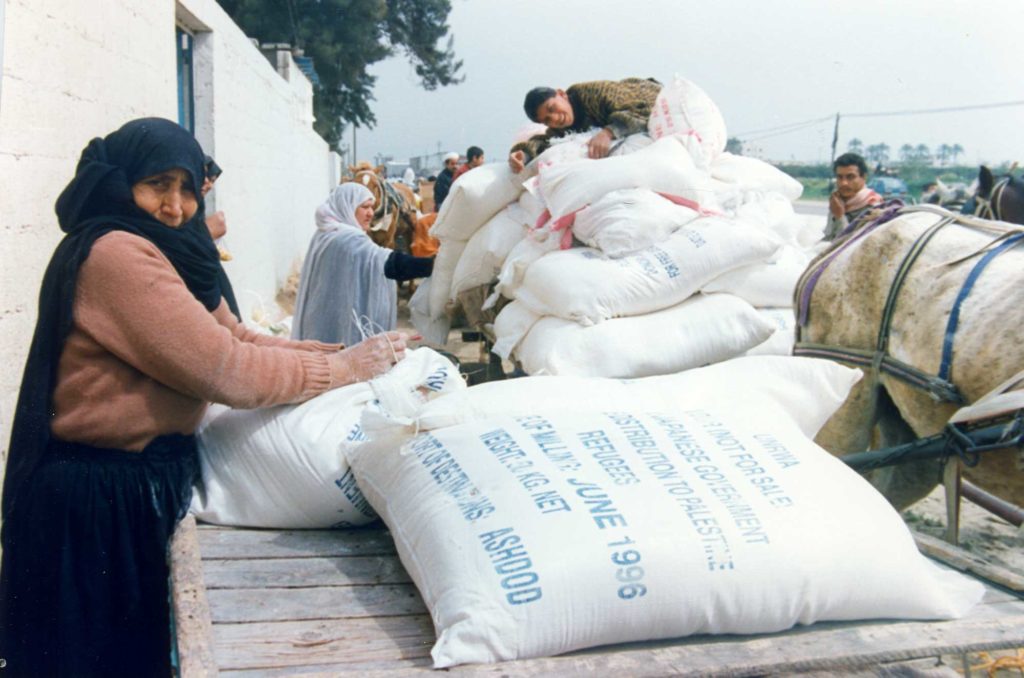

The bombardments of 2008-09 and 2014 brought terrible destruction and loss of life in Gaza. After 73 combined days of bombings and incursions, the traumatized residents of Gaza were left to pick up the pieces. During and immediately after both military campaigns, Anera delivered water, medicines, food, hygiene supplies, fuel, renovations to schools, repairs of home water tanks, and psychosocial support to children.
In 2008-2009, during the 22 days of the bombardment and the months that followed, Anera delivered $4.76 million in healthcare supplies to clinics and hospitals to treat the injured and distributed $1.4 million in food aid to needy families. To address the trauma that local families experienced, Anera also provided psychosocial assistance in war-ravaged areas to 6,500 children, ages 8-14, and 1,500 parents. Anera delivered hygiene kits containing 8.5 tons of Palestinian handmade soap to 11,000 people in Gaza. All of the soap distributed came from four women's cooperatives in the West Bank.
In April 2009, Anera staff – who received special instruction – conducted a 90-minute training session on unexploded ordinance (UXO) safety and awareness for farmers in North Gaza whose lands were heavily bombed over the winter. Farmers and workers learned what UXOs are, their shapes and sizes, and the safety measures that should be adopted in dealing with suspicious ordinance.
Following the Gaza bombing in the summer of 2014, Anera invested $13 million in relief and development, employing funds from a multitude of organizations to give Gaza families access to water, hygiene items, medicines, food, and clothing. Anera was one of the first organizations to deliver relief during and after the 51-day Gaza war in the summer of 2014. Our distribution networks in Gaza meant that we could act immediately. Anera’s staff distributed 42,413 hygiene kits to displaced families and 429,732 liters of bottled water. We purchased and set up 132 community water storage tanks, each with a capacity of 2,400 liters, and dispatched five water tankers for daily water tank refills in 30 neighborhoods, delivering 10,954,500 liters of water. Anera also provided 432,000 liters of fuel to dozens of plants that desalinate water, treat sewage, and pump stations.
These are excerpts from our 2014 response log —
Saturday, July 12, 2014: From Anera’s Gaza office director, Nahed Al-Wehaidi: “I have just arrived home safely after having given out all the food parcels to our local partners in Deir Al Balah, Gaza City, and Beit Lahia. Our Deir Al Balah partner started the distribution to families as soon as I arrived, as the situation is getting worse there in terms of safety/security. The other 2 partners will start the distribution tomorrow."
July 19-20, 2014: Staff were asked to stay indoors as streets remain unsafe during the ground invasion. There are 500 boxes of food and 600 boxes of medicines and medical supplies in our Gaza warehouse ready for immediate distribution as soon as conditions allow it. So far the “humanitarian pauses” in violence have been too short to carry out any form of delivery.
August 5, 2014: Today was the first time in nearly a month that all 16 of Anera’s Gaza staff was able to go out and work safely. Among other activities, they delivered food parcels to 1,600 displaced families in Beit Lahia and Gaza City.
August 12, 2014: Distributed 244,260 liters of water, 8,312 hygiene kits, and 6,480 liters of liquid soap to 12,506 displaced families in 32 UN shelters. Set up 50 large water tanks in central locations across Khan Younis, Jabalia, Maghazi and Bureij. Throughout the week, Anera sent over a million liters of water to continually refill the tanks. This is daily and ongoing.
September 18, 2014: Five tanker trucks delivered, cumulatively over 21 days, 12,976,000 liters of drinking water to 87 communal water tanks throughout Khan Younis, Jabalia, Bureij, Maghazi, the Middle Area, Zahra, Shejaiya and Zeitoun. Also delivered 255,700 liters of fuel to water desalination, wastewater treatment plants, water wells and pumping stations from the far north to the far south of Gaza.
November 5, 2014: Distributed a shipment of assorted valuable medicine to 18 hospitals and clinics across Gaza.
In 2018-2019, protests called "The Great March of Return" took place at the wall separating Gaza and Israel. The protesters were focused on the right of return for Palestinian refugees and their descendants to family lands or homes lost during the 1948 Arab-Israeli War. Many thousands of Palestinians were injured. In North Gaza alone, 35 protesters lost their lives and 1,308 were wounded. Gaza hospitals were overwhelmed with patients in need of medical aid and they soon ran short on essential medical supplies. During the months that the protest persisted, Anera provided Gaza's main surgical hospital, Al Shifa, with urgently needed antibiotics, medicines, and other supplies such as Cefazolin, Ceftriaxone, painkillers, and saline solutions.
